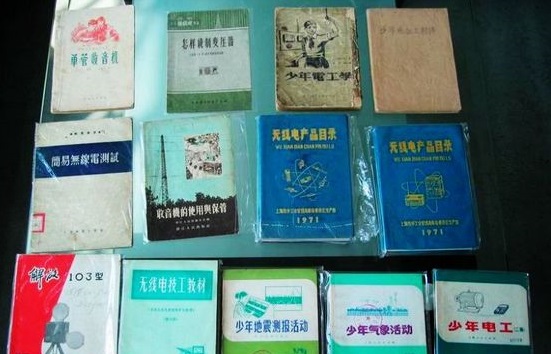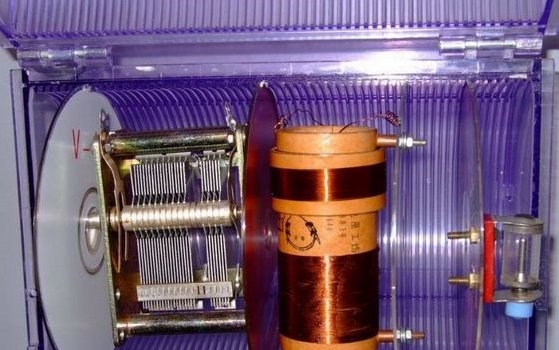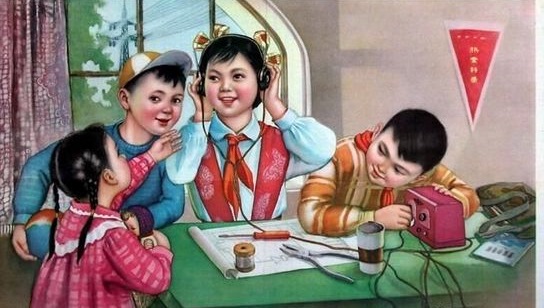HIFI, Hi-Fi in the mouth of enthusiasts generally refers to audio equipment with high technical indicators. It can be said that HIFI equipment has a technical standard in the world. Of course, HIFI is also a group title (fans). So what is its history? How much do you know about it? Do you know the ins and outs of it?
Today, Xiao Bian carefully organizes the development of HIFI audio, and wants to take you back to the past HIFI world, talk about its origin, its ins and outs.
The history of China's sound development should be traced to the Second World War, especially the victory of the War of Resistance Against Japan. The United States, as an ally of the United States, gave great support to China in the Pacific battlefield. At that time, Shanghai and Nanjing hoarded a large number of US military electronic equipment. And electronic components, as well as a large number of radio components.
 Mr. Wang Yingcai, who is now 82 years old, was studying for the radio production technology of the Kuomintang Radio School during the Shanghai Anti-Japanese War. He then made a tube radio for a radio bank owner and embarked on the road of audio fever. Although Mr. Wang’s hobby was originally used to support his family’s life (in the form of piece counting, welding a radio boss gave him a money), but ultimately influenced his life in the form of personal interests.
Mr. Wang Yingcai, who is now 82 years old, was studying for the radio production technology of the Kuomintang Radio School during the Shanghai Anti-Japanese War. He then made a tube radio for a radio bank owner and embarked on the road of audio fever. Although Mr. Wang’s hobby was originally used to support his family’s life (in the form of piece counting, welding a radio boss gave him a money), but ultimately influenced his life in the form of personal interests.
From this, we can say that the popularity of audio fever in China originated from radio radios, including early ore radios, tube radios, and transistor radios that were only available after liberation. In fact, whether it is ore radio or electronic tube, transistor radio, the signal amplification part of the circuit is the earliest embodiment of the power amplifier in the current audio system. The earliest ore radios, tube radios, and transistor radios were not designed to listen to radio content or listen to music for a single purpose, but to develop young people's ability to learn electronic technology and hands-on production. Therefore, there have been many publications that have guided the study of middle school students, such as "Secondary Technology", "Electronic World", "Radio", "Youth Radio" and so on.
 It can also be said that even today's audiophiles are not all pure audio to enjoy music as the ultimate goal. There are a lot of genres in the audio fever, but at least the pure DIY production pie is the most fun to make the sound by yourself. There are many books and magazines that guide audiophiles on how to make audio. These are all helpful for audiophiles to improve their electronic circuit technology. It can also be said that this is a separate marginal subject, with the dual meaning of popular science and training ability.
It can also be said that even today's audiophiles are not all pure audio to enjoy music as the ultimate goal. There are a lot of genres in the audio fever, but at least the pure DIY production pie is the most fun to make the sound by yourself. There are many books and magazines that guide audiophiles on how to make audio. These are all helpful for audiophiles to improve their electronic circuit technology. It can also be said that this is a separate marginal subject, with the dual meaning of popular science and training ability.
In general, older audiophiles have had the experience of self-learning radio technology. For electronic circuits, there have been years of accumulated practice from the shallower to the deeper, including making their own circuit boards, circuit practice, overhauling or repairing electrical equipment. Proficiency in application with household appliances and commonly used instruments. Among them, there are successes and failures, experience and lessons, and triumphs and failures. Only through these bumpy accumulations, it is possible that on the road of audio fever, the more mature and stable, the more interest will increase. No reduction.
 In the early 1980s, the word HIFI appeared in China. At that time, the sound was completely out of the radio and became a self-contained one, and it has undergone rapid evolution through mono tape recorders, mono tape recorders, and two-channel stereo recorders. Strictly speaking, the original mono-combination set sound is still not Hi-Fi audio, and the domestic two-channel stereo combination audio should not be included in the true Hi-Fi audio.
In the early 1980s, the word HIFI appeared in China. At that time, the sound was completely out of the radio and became a self-contained one, and it has undergone rapid evolution through mono tape recorders, mono tape recorders, and two-channel stereo recorders. Strictly speaking, the original mono-combination set sound is still not Hi-Fi audio, and the domestic two-channel stereo combination audio should not be included in the true Hi-Fi audio.
The real rise of China's Hi-Fi audio should be the transition from a modular audio to a personalized audio combination, that is, the audio source, amplifier, and speakers appear as separate single-piece forms, and personalized by the enthusiasts. At this time, many audio companies in the Pearl River Delta of Guangdong Province launched their own single-piece hi-Fi equipment. Although it is a very general thing now, it should belong to the most basic Hi-Fi entry-level products. After the 1990s, HIFI products began to take European products as the mainstream. And many DIY products have appeared, and the manufacturers with scales are slowly appearing. After more than ten or twenty years of development, the current domestic HiFi manufacturers can also say that the number is not too large, and many excellent products have been used for many years. In recent years, there have been many classic products that can be said to be milestones.
Hifi has been loved by more and more enthusiasts in recent years, and domestic HIFI audio manufacturers are becoming more and more professional. Whether it is international or domestic HIFI exhibitions are increasingly held, more enthusiasts gather to communicate. Therefore, Xiaobian believes that the domestic HiFi industry will develop at a high speed in the next few years. I think you are also so convinced!
SMT Cable ,original and new, in stock, top quality.
Smt Machine Spare Parts
Original Smt Feeder
Original Smt Cable
Smt Machine Cable
Smt Spare Parts Fuji Cable
Smt Cable
Smt Belt
Smt Siemens Belt
Smt Juki Belt
Smt Conveyor Belt
Smt Camera
Smt Laser
Camera For Smt
Smt Siemens Camera
Smt Parts Plastic Rail
Smt Plastic Rail
Smt Juki Plastic Rail
Juki Plastic Rail
SMT Nozzle For Yamaha
Yamaha Nozzle
Nozzles For Yamaha Machine
Smt Yamaha Nozzle
Smt Siemens Nozzle
Smt Nozzle For Siemens
Siemens Nozzle
Smt Nozzle For Samsung
Samsung Nozzle
Smt Samsung Nozzle
Panasonic Nozzle
Smt Panasonic Nozzle
Smt Nozzle For Panasonics
Nozzles For Panasonic Machine
Smt Juki Nozzle
Nozzles For Juki Machine
Juki Nozzle
High Pressure Juki Nozzle
I-Pulse Nozzle
Nozzles For I-Pulsemachine
Smt I-Pulse Nozzle
High Pressure Fuji Nozzle
Nozzles For Fuji Machine
Fuji Nozzle
Smt Fuji Nozzle
Smt Nozzle
Smt Parts Nozzle
Smt Nozzle For Machine
Smt Spare Parts Nozzle
Yamaha Smt Feeder
Yamaha Feeder
Smt Machineyamahafeeder
Smt Feeder For Yamaha
Smt Feeder For Siemens
Smt Machine Siemens Feeder
Siemens Smt Feeder
SIEMENS Feeder
Samsung Smt Feeder
Smt Machine Samsung Feeder
SAMSUNG Feeder
Smt Feeder For Samsung
Panasonic Smt Feeder
Panasonic Feeder
Smt Machine Panasonic Feeder
SMT Feeder For Panasonic
Smt Feeder For Juki
JUKI Feeder
Juki Smt Feeder
Smt Machine Juki Feeder
I-Pulse Feeder
Smt I-Pulse Feeder
Smt Parts I-Pulse Feeder
I-Pulse Type Feeder
Pneumatic Feeder
Fuji Feeder
Smt Fuji Feeder
Fuji Smt Tape Feeder
Smt Machine Feeder
Smt Tape Feeder
Smt Feeder
Feeder For Smt Machine
Siemens Control Valves
Smt Siemens Valve
Siemens Vacuum Valve
Siemens Valves
Smt Samsung Valve
Samsung Vacuum Valve
Samsung Control Valves
SAMSUNG Valve
Juki Vacuum Valve
Juki Ejector
Juki Vacuum Ejector
Juki Valve
Ejector For Vacuum
Smt Vacuum Ejector
Smt Vacuum Valve
Cylinder For Samsung
Smt Samsung Cylinder
Samsung Air Cylinder
SAMSUNG Cylinder
Panasonic Pir Sensor
Panasonic Sunx Sensor
Panasonic Original Sensor
Panasonic Sensor
Juki Sensor
Juki Laser Sensor
Juki Smt Sensor
Laser Sensor
Juki Cylinder
Juki Square Cylinder
Juki Air Cylinder
Cylinder Square
SMT Cable
Smt Machine Cable,Smt Cable,Smt Spare Parts Fuji Cable,Original Smt Cable
Shenzhen Srisung Technology Co.,Limited , https://www.sr-smt.com